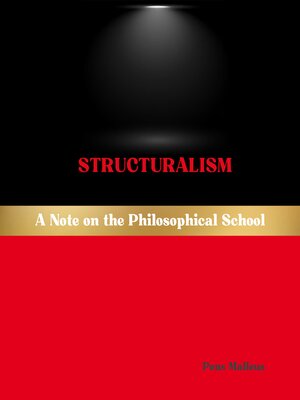Structuralism
audiobook (Unabridged) ∣ A Note on the Philosophical School · Western Philosophical Schools
By Pons Malleus

Sign up to save your library
With an OverDrive account, you can save your favorite libraries for at-a-glance information about availability. Find out more about OverDrive accounts.
Find this title in Libby, the library reading app by OverDrive.



Search for a digital library with this title
Title found at these libraries:
| Library Name | Distance |
|---|---|
| Loading... |
This audiobook is narrated by a digital voice.
This audiobook is an exploration into one of the most influential, yet often misunderstood, movements in 20th-century philosophy and human sciences: structuralism. Born from the crossroads of linguistics, anthropology, psychoanalysis, and literary theory, structuralism is less a rigid doctrine than a mode of inquiry—a way of seeing the world that privileges systems, relationships, and structures over isolated elements. Its central premise is deceptively simple: the meanings we assign to things, ideas, and experiences do not arise from their intrinsic nature, but from their position within a larger system. Whether that system is language, myth, culture, or society, structuralism urges us to shift our focus from the individual unit to the network of relations that make that unit intelligible.
This shift has far-reaching consequences. It compels us to reconsider what it means to understand a text, a ritual, or even a self. It challenges the romantic ideal of the autonomous subject, calling into question the notion of individual creativity or originality as the ultimate source of meaning. It proposes that human thought itself is shaped—and perhaps constrained—by the deep structures that underlie culture and language. Structuralism, in this way, is both a method and a worldview. It is a lens through which we can interpret the complexity of human life, not by tracing origins or intentions, but by revealing the hidden architectures that organize experience.
The roots of structuralism are most often traced to the work of Swiss linguist Ferdinand de Saussure, who revolutionized the study of language by proposing that meaning arises not from a direct relationship between words and things, but from the differential relations between signs within a system. This insight would be adopted and expanded by thinkers such as Claude Lévi-Strauss in anthropology, Roland Barthes in literary theory, Jacques Lacan in psychoanalysis, and Michel Foucault in epistemology.







